Some bias against Mute Swans exists because they are frequently labelled “non-native,” “alien,” and “invasive.”
Worst of all, “invasive” is often used as though it has the same meaning as “non-native.” In fact, “invasive” is a distinct concept, denoting a species of plant or animal that overtakes ecosystems with harmful effects. Not all non-natives are invasive and native-ness is not an indication that a species is beneficial. The insect currently suspected of killing more trees than any other in North America is native. Equally, non-natives can help ecosystems thrive.
In the case of Mute Swans, they are a fraction of the waterbird species in the Lower Great Lakes and they are not destroying ecosystems. Further evidence of that comes from the broad support for Trumpeter Swans (pictured above being fed by a volunteer). Trumpeters, who are considered native, exhibit the same behaviours as Mutes, and wildlife authorities express no concerns about Trumpeters being destructive.
Today, many biologists and ecologists are calling for a more nuanced view of species. These scientists argue that the focus on species’ origins is creating the perception that all non-natives are invasive and is being used to justify unnecessary and lethal actions.
Mute Swans were brought to North America by humans over a century ago and are now “naturalized,” meaning they have lived in the wild for over 50 years. Mute Swans have nested in Ontario for 65 years and more than 18 generations. They have a rightful place in our wetlands and should not labelled invasive.
